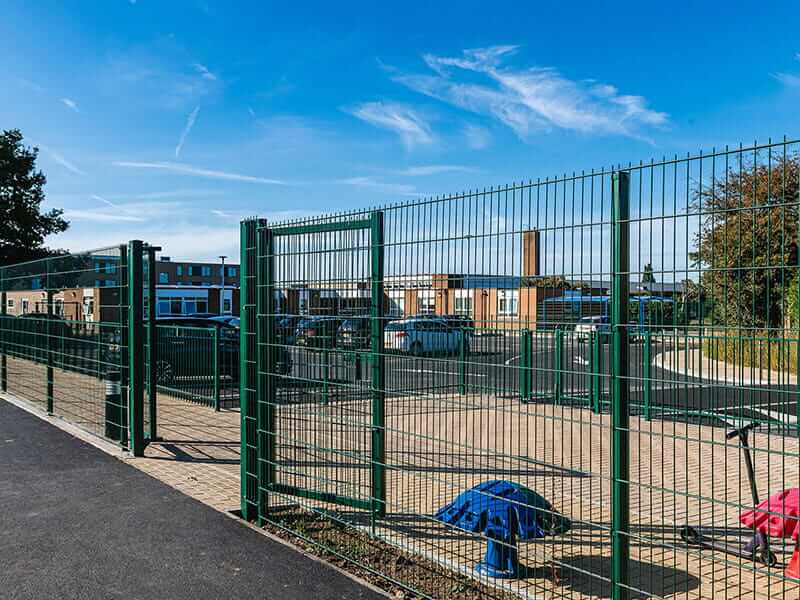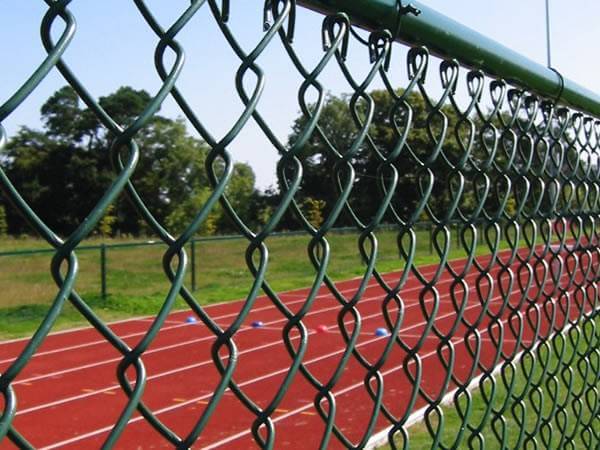The psychology of perimeter fencing plays a vital role in defining boundaries and creating a sense of security. It impacts the perception of safety and privacy, influencing behavior and emotions.
Perimeter fencing serves as a physical and psychological barrier, shaping the way people interact with their surroundings.
The design, height, and materials of the fence can evoke feelings of protection, division, or exclusion.
Understanding the psychological impact of perimeter fencing can guide property owners and designers in creating spaces that promote a sense of security while also fostering a welcoming environment.
By tapping into the psychology behind perimeter fencing, it’s possible to enhance the overall experience and well-being of individuals within a given space.
Let’s delve deeper into the various psychological aspects of perimeter fencing and its influence on human behavior and perception.

Impact Of Perimeter Fencing On Psychological Well-being
The impact of perimeter fencing on psychological well-being is a multifaceted subject that covers various aspects of human psychology.
The presence of perimeter fencing can have a significant impact on individuals’ sense of security and safety, the formation of boundaries, and the visual and psychological privacy.
Understanding the psychological implications of perimeter fencing can offer valuable insights into its role in shaping people’s well-being.
Sense Of Security And Safety
The notion of security is deeply ingrained in human psychology. Perimeter fencing serves as a physical barrier, offering a tangible sense of protection and security to individuals.
The presence of a well-defined perimeter creates a psychological boundary, signifying the separation between personal space and the external environment.
This contributes to a heightened sense of safety and can alleviate anxieties related to potential intrusions or threats.
Boundary Formation And Psychological Boundaries
Perimeter fencing plays a significant role in the formation of boundaries, both physical and psychological.
Establishing clear boundaries through fencing delineates personal space, instilling a sense of ownership and control.
Psychologically, this assists individuals in defining their personal boundaries and distinguishing their immediate environment from external influences.
Such clear delineation can foster a sense of empowerment and autonomy, positively impacting psychological well-being.
Visual And Psychological Privacy
Perimeter fencing contributes to visual and psychological privacy, creating a perceived barrier between individuals and external observation.
This contributes to a sense of seclusion and control over one’s immediate surroundings, fostering a feeling of security and privacy.
The visual and psychological seclusion provided by perimeter fencing can offer individuals a sanctuary from external stimuli, promoting a sense of tranquility and peace of mind.
Perimeter Fencing And Social Dynamics
Understanding the impact of perimeter fencing on social dynamics is vital in shaping community relationships and security perceptions.
The presence of perimeter fencing profoundly influences various aspects of social interactions and neighborhood cohesion.
Influence On Neighborhood Cohesion
The installation of perimeter fencing has a significant impact on the cohesion and sense of community within a neighborhood.
While it can establish a clear boundary, it may also create a divide between neighbors, potentially affecting mutual support and interaction.
Perceived Boundaries And Social Interaction
Perimeter fencing can influence social interaction by visually and psychologically creating perceived boundaries.
It may shape the way residents engage with each other and impact the sense of openness and inclusivity within the community.
Security Perception And Community Trust
The presence of perimeter fencing can influence the perception of security within a community.
The visibility of fencing and security measures can impact the level of trust and safety felt by residents, potentially affecting the overall sense of well-being and trust within the community.

Frequently Asked Questions
Why Is Perimeter Fencing Important For Property Security?
Perimeter fencing provides a physical barrier, deters intruders, and enhances property security effectively.
How Does Perimeter Fencing Impact The Psychological Perception Of Space?
Perimeter fencing can create a sense of privacy, safety, and ownership, influencing psychological well-being positively.
What Factors Should Be Considered When Choosing Perimeter Fencing?
When selecting perimeter fencing, factors like material durability, aesthetic appeal, and maintenance requirements should be taken into account.
Conclusion
As we’ve explored, perimeter fencing plays a crucial role in influencing human behavior and mental well-being.
Understanding the psychological aspects behind fencing helps in creating safer and more secure environments.
By considering the impact on perception, privacy, and social boundaries, we can design fencing solutions that cater to the innate psychological needs of individuals.








